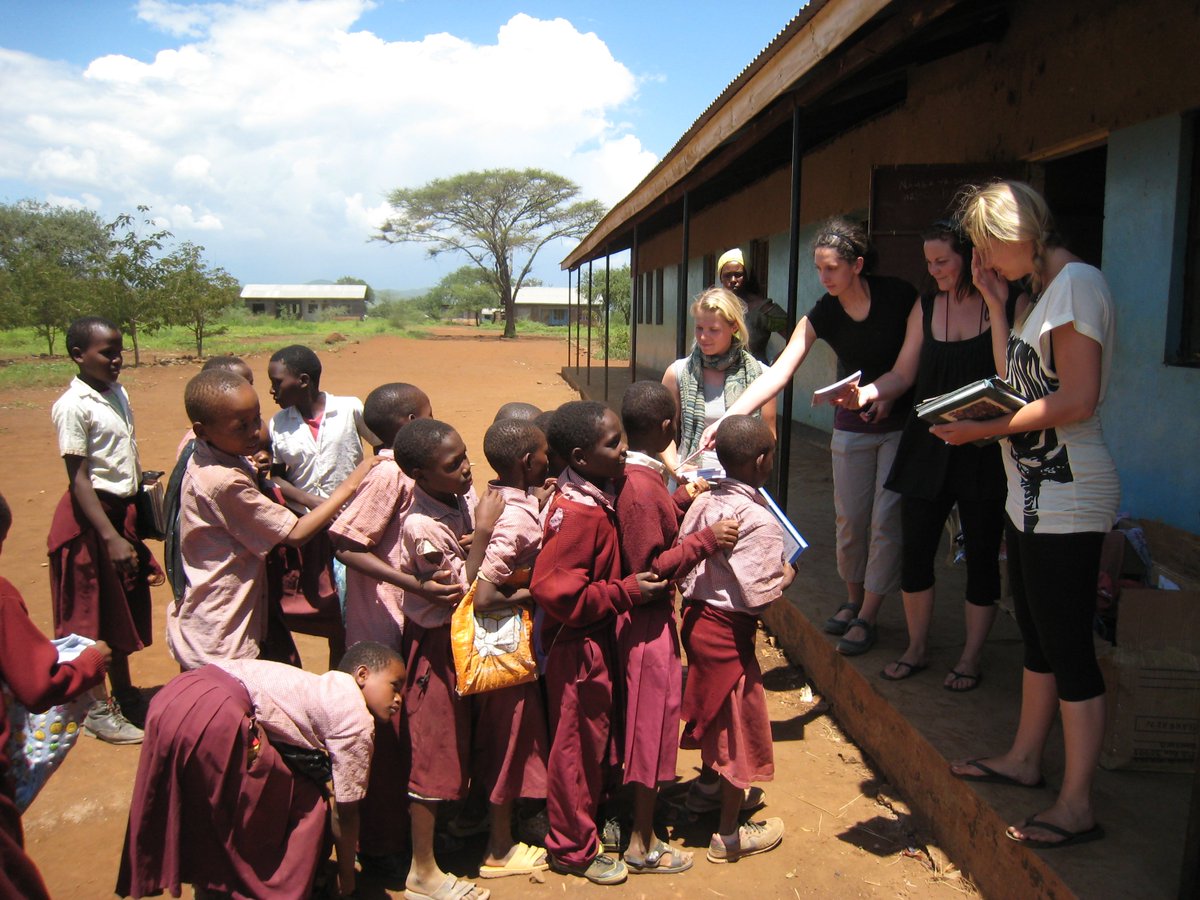loyola llothta
☭☭☭

NGOs are criticized for focusing on technical solutions to poverty instead of the underlying issues and causes.
Non-governmental organisations have become key actors in responding to poverty and related suffering. In Africa, NGOs play a leading role in providing health care and education.
The non-profit sector continues to grow rapidly in Africa and around the world. In South Africa alone, there are more than 100,000 registered non-profit organisations and in Kenya the number of NGOs grew by over 400 percent between 1997 and 2006. And for most observers, they seem to be well-intentioned actors who do a lot of good on the continent.
But NGOs also have their detractors who argue that they are receiving growing amounts of donor aid, but aren’t the most suitable actors for really improving people’s lives.
The Cases Made Against the NGO Sector
Some critics also insist that the neoliberal policies advanced by powerful international actors have limited the influence of the state and that NGOs have benefited as a result.
Neoliberalism is an approach that favours a smaller role for the state in the economic arena. Advocates believe that the market and other non-state actors provide better services than governments.
Since the 1980s, international financial institutions like the World Bank and International Monetary Fund, have forced indebted African states to reduce public expenditure. This has encouraged the flourishing of non-state actors like NGOs.
While both local and international NGOs have benefited from this move, African states have been less able to access international aid. This undermines their sovereignty and places African people at the mercy of donors.
NGOs are also criticized for their focus on technical solutions to poverty instead of the underlying issues. So, for example, an NGO might provide water tanks for the poor without addressing the power imbalances that resulted in some having water while others don’t.
Another criticism is that NGOs are more accountable to their funders than those they serve. Because they are largely dependent on funding, their projects are crafted in line with donor preferences instead of those they supposedly represent.
A final criticism relates to the fact that NGO workers tend to be foreigners or local elites. Instead of empowering local populations to organise themselves, NGOs provide employment and a sense of purpose for elites with degrees in subjects like development studies.
Can NGOs Fix Africa’s Problems?
There’s much truth to these criticisms. But does this mean that NGOs have no role to play in Africa’s struggle for poverty and injustice?
A recent collection of articles titled ‘NGOs and Social Justice in South Africa and Beyond’, which I edited, brings together the voices of NGO workers, academics and social activists to consider this question.
The contributors raise a range of interesting ideas like how radical change can still be achieved. Can profound changes be made while working within existing structures and organisations?
Firoze Manji, who has published widely on the topic of social justice, defines what freedom really means. He makes a distinction between “licensed freedoms” and “emancipatory freedoms.”
Licensed freedoms are achieved “within the system.” As such they improve lives but don’t dramatically change power dynamics. An example can be drawn from the apartheid era when activists convinced the state to make some concessions for Black South Africans.
In contrast, emancipatory freedoms are about bringing about a new order. An example would be when people manage to defeat an oppressive state entirely.
Manji argues that NGOs empower people to attain licensed, rather than emancipatory, freedoms.
Pushing for Social Change
But NGO workers might rightfully argue that it isn’t so easy to distinguish between working within the system and working against it.
When an NGO teaches people to read, for example, this new ability might empower them to challenge things they had previously accepted. Learning this new skill might enable them to act in new, more empowering ways. So the achievement of a basic skill can enable populations to achieve emancipatory freedom.
Another example is brought out by Tshepo Madlingozi who is the advocacy adviser to the Khulumani support group in South Africa.
He shows how NGOs and social movements fighting for radical change have been able to use the courts to gain small victories.
Court victories are often hollow. For example, in the Grootboom case in South Africa, Irene Grootboom won a court struggle against eviction, but ended up dying homeless eight years later.
But court struggles can draw attention to the plight of ordinary people and mobilise and unify those working towards certain radical goals. In this way, the use of “the system” — in this case the courts — can help support the struggle for emancipatory freedoms.
Ashley Westaway, manager of an education NGO and a contributor to the collection, makes a case for providing basic services and technical assistance as a means to give an organisation the credibility required to advocate for more radical, structural change.
Perhaps the correct approach may be to let go of the idea that choices within the NGO sector are limited to either maintaining the status quo or pushing for a revolution.
Perhaps, as is the case with some of the most dynamic NGOs, workers need to operate in the cracks of the current system in ways that challenge injustice and open the door to new possibilities. Other actors, such as governments and social movements, have very important roles to play, but this doesn’t mean that NGOs can’t contribute to pushing for social justice in Africa.
Source:
The Role of NGOs in Africa: Are They a Force for Good?
Last edited:
 good video
good video
 " with an arm around a PAWG.
" with an arm around a PAWG.